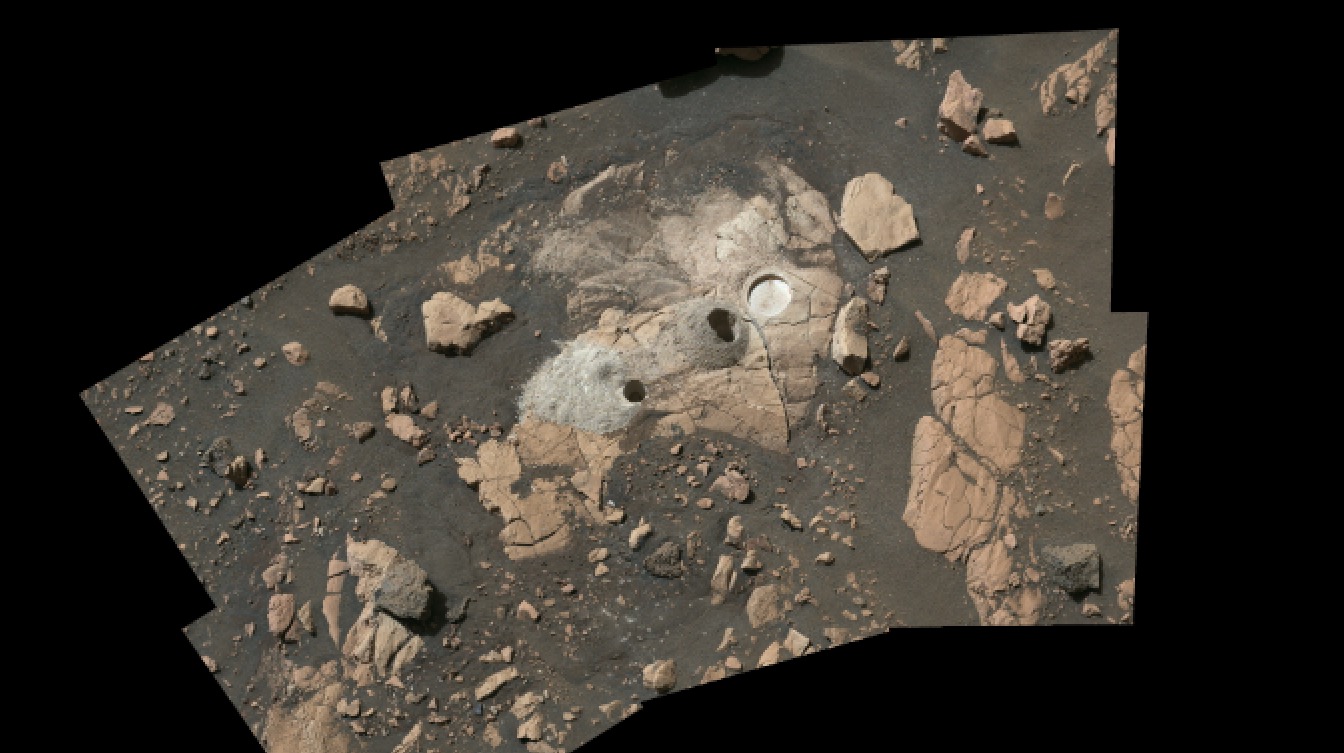We still haven't found most of Mars' ancient lakes
Mars has about 500 known ancient lake beds, but there could be more than 1,000 such 'paleolakes' still undetected.

The search for water on Mars just took another turn.
Hundreds of long-dry "paleolakes" on Mars may lie undetected even as numerous missions scour the Red Planet's surface for signs of ancient habitable environments, a new study suggests.
Scientists are finding more and more evidence that water flowed on Mars billions of years ago. NASA's Curiosity and Perseverance rovers, for example, are currently exploring craters that harbored big lakes in the distant past.
But such large, dramatic craters may not be representative of most ancient Mars lake habitats, according to the new study; indeed, statistics suggest that most Martian paleolakes probably have not been found yet.
In pictures: The search for water on Mars

"Mars has about 500 known paleolakes, but >70% of ancient Martian lakes have so far not been detected (by comparison to statistics for Earth)," study lead author Joseph Michalski, an associate professor of Earth sciences at the University of Hong Kong, told Space.com via email. "In other words, we have not detected the small lakes on Mars yet."
While water is a crucial ingredient for life as we know, Michalski cautioned against drawing a direct link between the unfound lakes and Martian life. Each individual lake probably survived for just 10,000 to 100,000 years, he said. They likely formed during Mars' Noachian period, which lasted about 400 million years.
Breaking space news, the latest updates on rocket launches, skywatching events and more!
"The lakes represent only a small fraction of that time, and they might not have strong implications for life," Michalski said.
Finding the Mars paleolakes may require divorcing ourselves a bit from what we know about lake formation here on Earth. For example, most Earth lakes are found in relatively high latitudes, where ice forms readily, but we haven't detected many Mars lakes in such settings, Michalski said.
In addition, researchers may want to hunt for paleolakes created by ancient Mars tectonic activity, but "we know almost nothing" about such presumed features, Michalski said.
"There are some cool and peculiar things about ancient Martian lakes," he added. For example, the Red Planet's gravity is just 40% as strong as that of Earth. Sediment would have been everywhere in the lakes as there was likely no vegetation to hold it together, and that, combined with the lower gravity, would have kept the lakes "murky for a long time," Michalski said.
"We tend to think of lakes on Mars as being hyper salty like desert playas, but the data do not support that view — they were probably fresh water," he noted.
The sun was fainter about four billion years ago, when these paleolakes existed. That fact, combined with Mars' greater distance from the sun compared with Earth and the likely murkiness of its waters, suggests that Red Planet paleolakes soaked up just 30% of the solar energy that Earth lakes currently get. So it's unclear how friendly those ancient Martian water bodies would have been for photosynthetic life.
These are just a few of the many things to consider in the search for life on Mars.
"If we are going to invest in exploring for life in Martian lakes, it would make sense to think deeply of which lakes, and why," added Michalski, as trying to search hundreds of lakes or more "is not obviously set up for success."
Follow Elizabeth Howell on Twitter @howellspace. Follow us on Twitter @Spacedotcom and on Facebook.
Join our Space Forums to keep talking space on the latest missions, night sky and more! And if you have a news tip, correction or comment, let us know at: community@space.com.

Elizabeth Howell (she/her), Ph.D., was a staff writer in the spaceflight channel between 2022 and 2024 specializing in Canadian space news. She was contributing writer for Space.com for 10 years from 2012 to 2024. Elizabeth's reporting includes multiple exclusives with the White House, leading world coverage about a lost-and-found space tomato on the International Space Station, witnessing five human spaceflight launches on two continents, flying parabolic, working inside a spacesuit, and participating in a simulated Mars mission. Her latest book, "Why Am I Taller?" (ECW Press, 2022) is co-written with astronaut Dave Williams.
